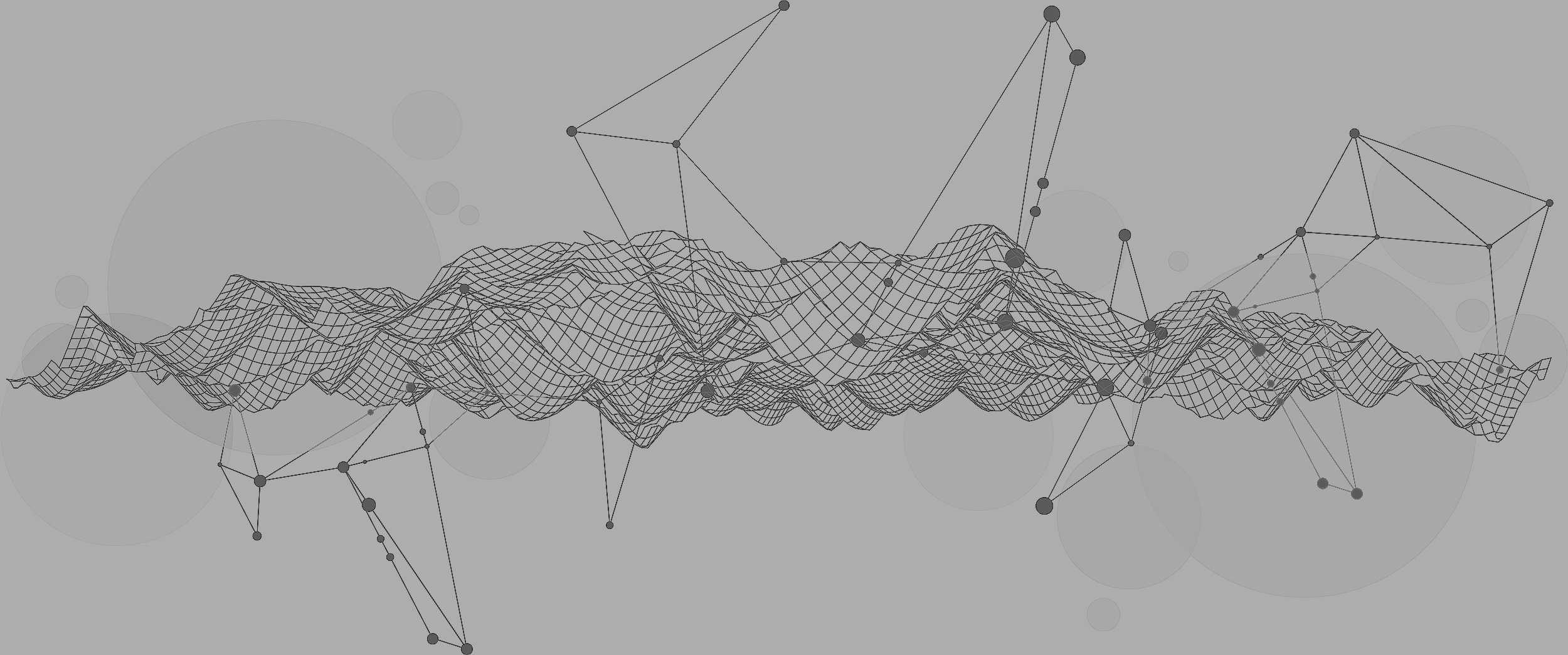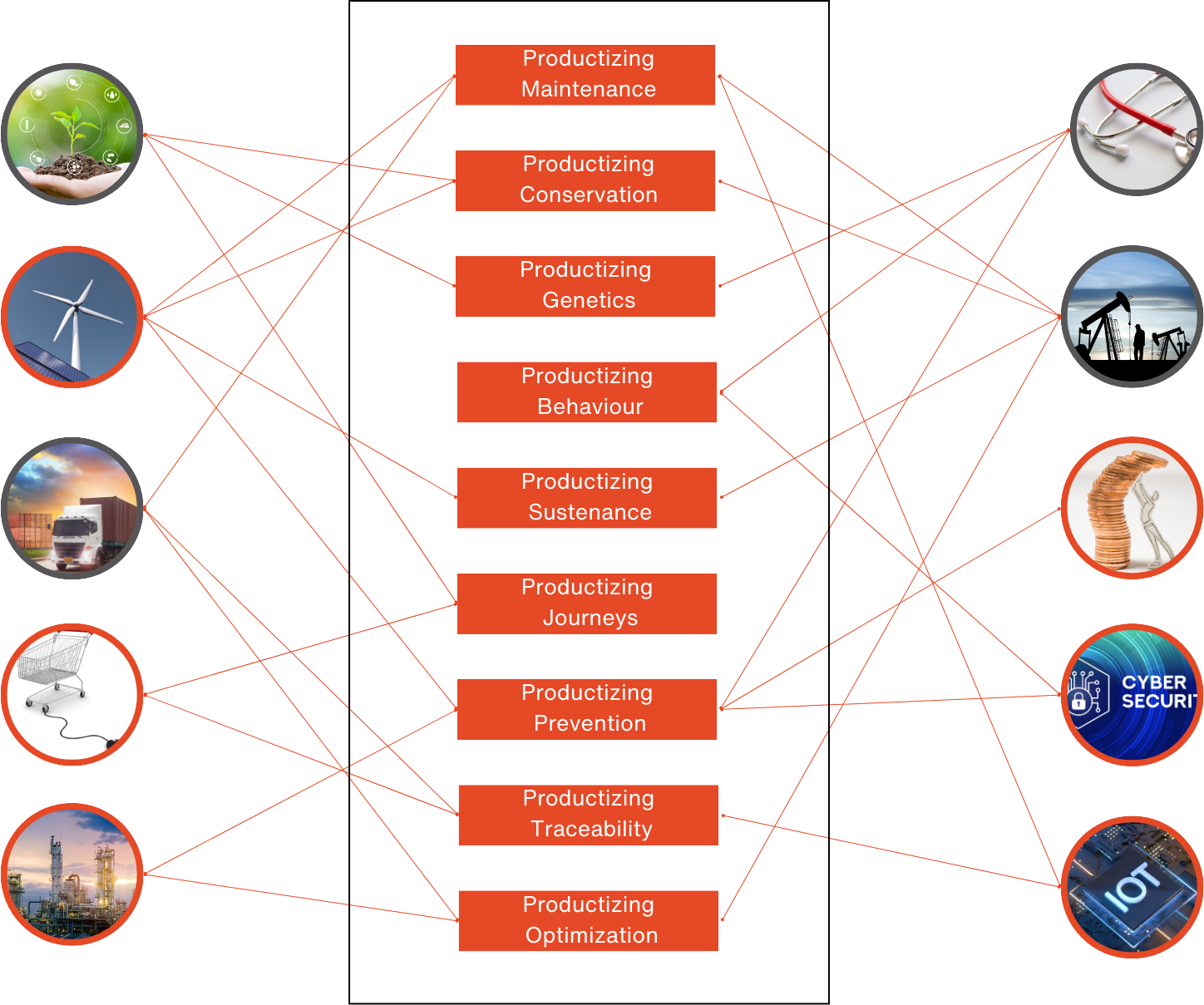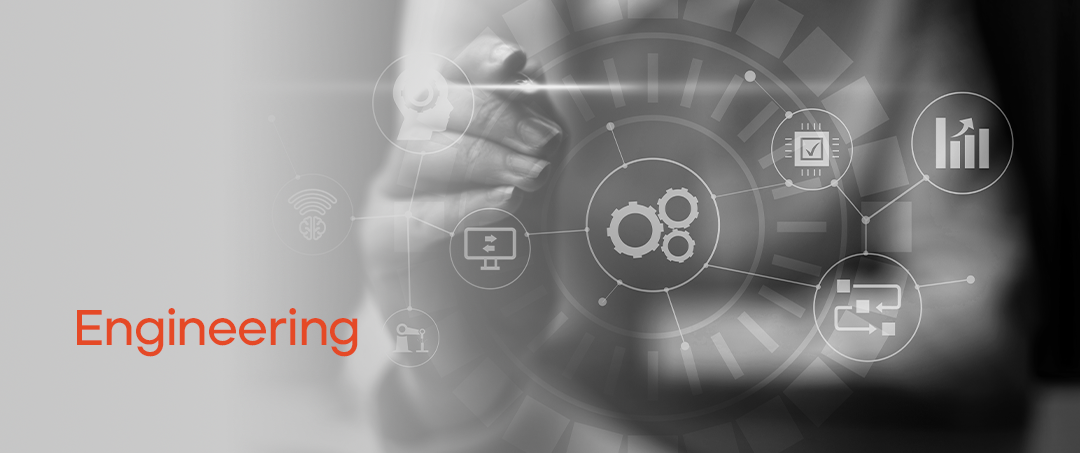Productization
Data products offer a high degree of determinism by quantifying the economic value of benefits
Productization at Wingenium drives data product design and development through innovative product engineering. We specialize in stitching and integrating multiple facets of engineering, including models and algorithms to provide a seamless and containerized data-embedded solutions, often augmented with external data integrations. Our aim is simply generating value. We often find that businesses struggle in attributing value to services derived from data that aim to address a broader issue. This frequently causes the services to stretch and pull beyond their original scope and shape to 'fit' the requirements consequently leading to expensive propositions for business sustainability and up-keep.
Our Industry Catalog supports multiple forms of Productization
Data Productization: Crafting Value from the Digital Mine
In the vast landscape of modern business, data is a valuable raw material, akin to the sand, soda ash, and limestone in a glass manufacturer's factory. This analogy helps us understand the concept of Data Productization — the process of turning data into refined, standardized, and marketable assets that fuel innovation, decision-making, and business growth.
Mining the Digital Landscape
Imagine your organization as a digital mining operation, extracting valuable ores from a vast digital mine. This mine is teeming with raw data—much like the unprocessed materials in a glassworks factory. But to unlock the true potential of this digital treasure trove, you need to apply the principles of Data Productization.
The Key Dimensions of Data Productization
Repeatable: Your digital mine contains a wealth of data, but not all of it is valuable. To ensure you're extracting the most precious ores consistently, you must establish repeatable processes. Just as a miner carefully extracts valuable minerals from rock, data experts collect, clean, and transform data into standardized, reliable formats.
Standardized: Just as a glass manufacturer adheres to specific dimensions and quality standards for its glass products, standardization is crucial in Data Productization. Data must conform to consistent formats, definitions, and quality levels to ensure that the products are trustworthy and easily understood by those who use them.
Automated: Automation is your digital mining equipment, helping you extract data efficiently. Whether you're aggregating data or generating reports, automation streamlines tasks, ensures data is up-to-date, and reduces manual labor.
Packaged: Once data is extracted and refined, you need to package it for consumption. Imagine your data products as beautifully crafted glassware. These could be user interfaces, interactive dashboards, or well-documented APIs, making data consumption convenient and actionable for your users.
Standalone: Your data products must be self-sufficient, like a well-crafted piece of glassware that doesn't rely on any external component. Users should be able to derive meaningful insights or take actions based on the data product alone.
Deterministic Value: Just as a piece of glassware has a fixed price, data products should have a predictable value as long as the underlying data, processes, and delivery methods remain consistent. This predictability reassures users and gives them confidence in the value they receive.
The Value Data Productization brings to business enterprises
Imagine your digital mine's valuable ores are now refined data products. These data products find applications in various domains:
At Wingenium, we're pioneering a transformative approach to client collaborations through productization. This innovative model is poised to reshape the way we work with our clients. It brings stability, transparency, and a redefined client-success relationship to the forefront.
Reasons for adopting productization in this context
The adoption of the productization model represents a significant departure from traditional service-driven approaches within the data industry. This approach is characterized by its stability, enhanced profit margins, and stronger client relationships. Embracing this model, data companies provide a transparent and pragmatic framework that simplifies their offerings and amplifies value for their clients.
Within the data productization model, Wingenium offers clients a clear-cut menu divided into three "classes of pathways towards sustained data value": data transformation, technology utilization, and insights creation. Each category presents a range of data packages meticulously designed to address recurring client data challenges. These data products come with fixed prices and well-defined deliverables and timelines upon purchase.
The data product portfolio comprises two types: foundational data products, constituting 80% of the offerings and built on standardized data components, and customizable data products comprising the remaining 20%. Customization options empower clients to tailor data solutions to their unique data needs and preferences.
One of the model's standout features is its transparency. Clients gain full visibility into the entire data process, including data procedures, validation, data utilization, and the customization of data strategies and analytics. This transparency empowers clients to understand precisely what will be delivered, when, and what is expected of them.
Data companies began implementing this innovative data model recently, with several clients already opting for data packages. The appeal lies in eliminating conventional data industry practices like lengthy data projects and uncertain outcomes. Instead, clients can choose to purchase data packages at predefined prices, which include agreed-upon data deliverables.
This approach, while practical, may raise questions about whether creating a menu of data services devalues the work of data professionals. However, data companies assert that it does the opposite. Over the years, the data industry has struggled with discounted rates, free data proposals, and commoditization under procurement pressures. The data productization model safeguards the industry's data work and pricing by offering data packages at fixed prices for guaranteed data deliverables. This value-based compensation model protects the data industry's future.
The adoption of the data productization model signifies a transformative shift within the data industry, emphasizing stability, transparency, and value-based compensation to protect data work and prevent historical data commoditization.
Data Productization is a transformative approach, akin to refining valuable minerals from a digital mine. Following the key dimensions allows organizations to unlock the full potential of their data assets, much like extracting precious ores from raw materials. As data continues to shape the modern economy, the art of Data Productization will be a defining factor for success across various industries, just as the creation of masterful glassware has been for centuries.

Would you like more information?
If you want to more information about this subject please get in touch with our Topology expert, who would be pleased to hear from you.
Invoke Ingenuity Data Topology Specialist
Ingenuity Framework is designed and maintained by our Data Topology team who are backed by our R&D on TDA sciences.









